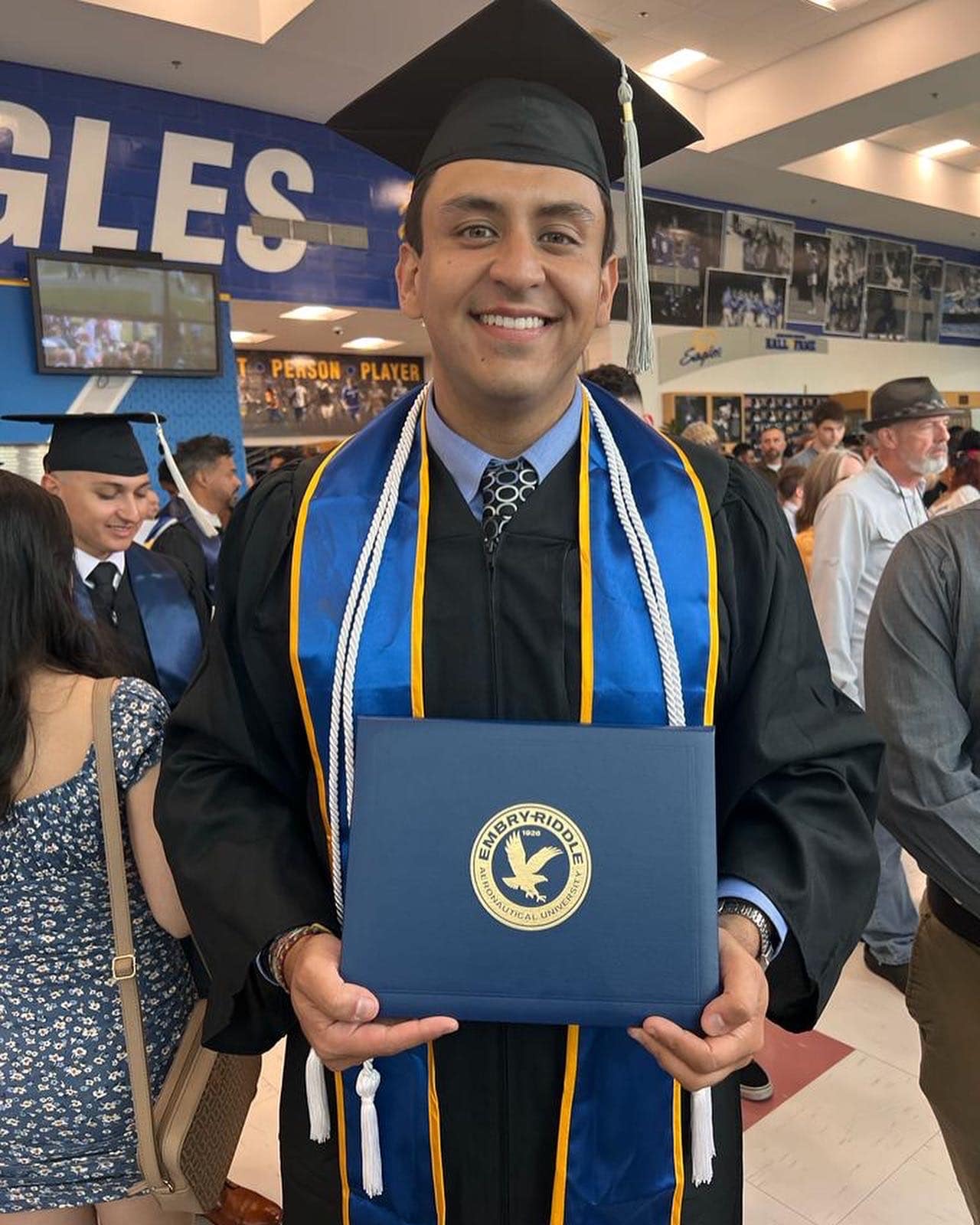A Directional COMPASS: How a Mentor Can Show the Way

For Juan Andres Mesa Sanchez (’21), earning his B.S. in Aeronautics from Embry-Riddle’s Worldwide Campus brought him one step closer to his lifelong dream of becoming a professional pilot.
But it hasn’t been an easy path. The Colombian native has been working full-time since he started his academic journey, and he’s grateful for the huge boost he got along the way from the Center for Mentorship Programs and Success (COMPASS) program.
Started in 2020 by the Worldwide College of Arts & Sciences, the COMPASS program has so far paired more than 250 students with faculty mentors, either individually or in small groups, to help elevate life skills that enhance personal growth and academic achievement.
We caught up with Juan, who is currently completing his flight training, to discuss his COMPASS program experience:
What first attracted you to the COMPASS program?
The first thing that caught my attention about this program was the immediate support that a mentor can offer you. I had already been blessed with great mentors who have supported me, cheered me on and provided feedback and advice for me to reach my goals. Professionally, having someone whose opinion and advice you trust can make a huge difference in taking steps that further your career and your future.
How has a COMPASS mentor helped you pursue your lifelong dream?
I place great value on self-development, and I enjoy discovering how far my capabilities can be pushed. So, when the COMPASS program was first mentioned to me by one of my professors, I wanted to do it right away. Having a mentor is one of the most important things you can do for self-development.
Why is the COMPASS mentor program important to your aviation career?
It has helped me improve my attention to quality and detail in my aviation skills, professional interaction and personal relationships. I cannot think of another field that requires the level of attention to detail and focus that aviation demands. Additionally, this program helped me develop certainty in how and where to seek the necessary information pilots need to work safely and decisively.
Tell us more about your COMPASS mentor and your experience with her
The relationship I developed with Assistant Professor of the Practice Janice Amos helped challenge me to get out of my comfort zone. My meetings with Professor Amos were without agendas. She would let me express my ideas out loud and from there we built the conversation. I found that to be extremely helpful because our talks allowed me to explain my feelings at different points in my career or life. It’s not just talking about all the different routes there are to success, but rather how to embrace what is present and use it to your advantage.
What did you learn from your COMPASS mentor that you are now using in your daily life?
Building “a set of transferable skills” seemed to be the focus of many of our talks. I can tell you from personal experience that those transferable skills can be adapted in your personal life and between jobs. Building these types of skills will really expand your career options, because they will be valued by many different potential employers as well as helping to enhance your own personal growth and development.
Since graduating, does COMPASS mentorship still have an impact on your professional and daily life?
YES! Absolutely. With all the big dreams that many of us have about making it somewhere in life, such as finishing college, getting a dream job or becoming a successful entrepreneur, it’s your transferrable skills that will help you get there and maybe set you apart from the rest.
What would you say to anyone considering the COMPASS program?
Do it! A mentor will support you and help you grow. It’s the opportunity to have someone with more experience than you share their advice, offer guidance and be a “voice of reason.” You will always benefit more from experience than anything else, and if someone who is in a position that you want to be in one day offers you that kind of advice, you must take it. Whether in your career or life in general, a mentor is important for continued growth, development and character building. On top of all that, you can count on creating a lifelong friendship.

 Jon O'Neill
Jon O'Neill